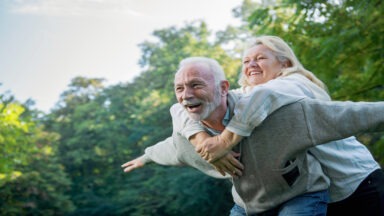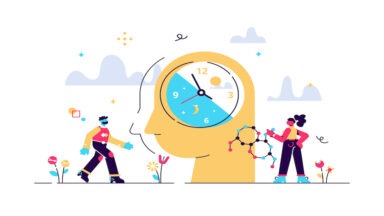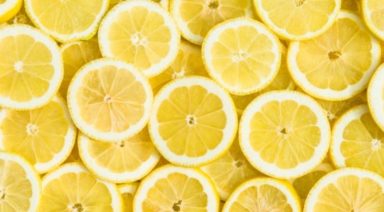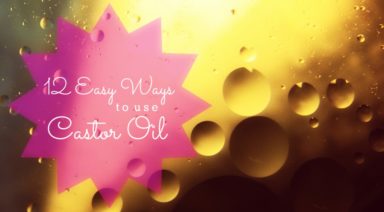Hack Colds and Flu with a Bathtub and Epsom Salt

Naturopathic medicine has been around for decades, but today’s naturopathic doctors undergo rigorous training and education rivaling traditional medical schools. Naturopathic research into time-honored folk healing methods has identified the science behind why so many of these practices persisted in times when a doctor may have been hours or days away or even inaccessible. Even 70 years ago, colds and influenza often turned lethal, and pneumonia was a dreaded killer. In those situations, folk medicine could be lifesaving.
Each present-day cold and flu season bring new flu strains and rhinoviruses, or colds. Once that scratchy throat or headache begins, we typically resign ourselves to several days or a week of being laid low. But naturopathic docs, including Dr. Matt Carlson N.D., a graduate of the respected Bastyr University, (a.k.a. the “Harvard of naturopathic medicine”) recommend methods that some would consider old school.
Dr. Carlson explains that when early signs and symptoms of a cold or flu present themselves, the first thing to do is to mimic a fever as soon as possible. Fever is one of the body’s ways of fighting pathogenic invaders and is a healthy response. By inducing a fever during the early stages of infection, the immune system has a chance to get the drop on the bugs. A simple hot bath with a few modifications accomplishes this — here are the steps.
- Take a hot bath, staying in the hot water for ten minutes.
- Get out and wrap up in warm clothes and socks.
- Jump under the covers and allow yourself to sweat for 15 minutes, giving the induced fever time to reboot the immune system.
- Drink hot fluids like bone broth or drinks with electrolytes to prevent dehydration from sweating.
Dr. Carlson adds that while it’s rare, there are those who should not jump in a hot bath without first checking with their doctor. “Contraindications include advanced cardiovascular disease or recent heart attacks (must avoid stressing the heart), local malignancies, people with impaired sensation, those who have open wounds, and those ordered to keep their heart rate down (active tachycardia, etc.). Check with your physician before using this method,” he said.
Adding Essential Magnesium
One hundred years ago the average diet was high in magnesium, but soil depletion has brought average daily consumption from roughly 500 mg. to 200 mg. Lowered magnesium levels are associated with eczema, psoriasis, acne, and a plethora of other conditions.
Epsom salt a.k.a. magnesium sulfate, is used for constipation (think Milk of Magnesia™) for generations, but has other valuable uses. According to a paper published by the NIH (National Institute of Health), “[Magnesium] is one of the most important micronutrients; therefore its role in biological systems has been extensively investigated. Particularly, Mg [magnesium] has a strong relation with the immune system, in both nonspecific and specific immune response.”
In simpler terms, magnesium is good for the immune system. It also improves bone density, activates Vitamin D, lowers the risk of osteoporosis after menopause, reduces the risk of type 2 diabetes and hypertension, and reduces fatty buildup on the heart’s artery walls. Magnesium deficiency may contribute to anxiety. Some studies suggest that magnesium may reduce the frequency and intensity of migraines.
Hot Water + Epsom Salt
Adding epsom salt to hot bath water creates the ideal conditions for maximum absorption — magnesium’s best delivery system for immune system support is through the skin directly into the bloodstream. Dr. Carlson cautions about using too much magnesium or using it too frequently if a someone is already taking other magnesium supplements or over-the-counter medicines with magnesium. If taken by mouth, magnesium in high doses can cause diarrhea, but an epsom salt soak entirely bypasses this.
Four cups of epsom salt added to hot bath water delivers a full dose of magnesium. Those using a foot bath should only use two cups of epsom salt. Adding the salts to a fever-inducing hot bath can increase the benefits when hacking cold and flu bugs, and provide a full dose of essential magnesium.
As seasonal influenza and rhinovirus strains become increasingly drug and vaccine resistant, it’s a good time to revisit every ‘hack,’ a.k.a. folk medicine technique, from the past for present day challenges.
1. https://ods.od.nih.gov/factsheets/Magnesium-HealthProfessional/#en54%20
Disclaimer: All information, content, and material of this website is for informational purposes only and is not intended as a substitute for the consultation, diagnosis, and/or medical treatment of a qualified physician or healthcare provider.
Intermittent Fasting: Meal Plans and Schedules

I love intermittent fasts. I have found them to be physically healing, emotionally cleansing, and spiritually uplifting. As the body experiences a shift in its attachment to food, the mind and heart experience something similar in relation to their attachments to ideas, feelings, people, and experiences.
Intermittent fasting refers to eating plans and dietary protocols that cycle between periods of fasting (no food or some food) and periods of non-fasting. There are a variety of intermittent fasting diets, along with several types of intermittent diet meal plans.
The benefits of intermittent fasting include lowering insulin levels, reducing inflammation, improving brain health, possible weight loss, and helping you feel more hopeful and prayerful. Overall, intermittent fasting has shown promising results in broad trials involving mice and a few limited human trials.
To learn more about intermittent fasting, check out my other article about the benefits, trends, spirituality, and dangers.



































